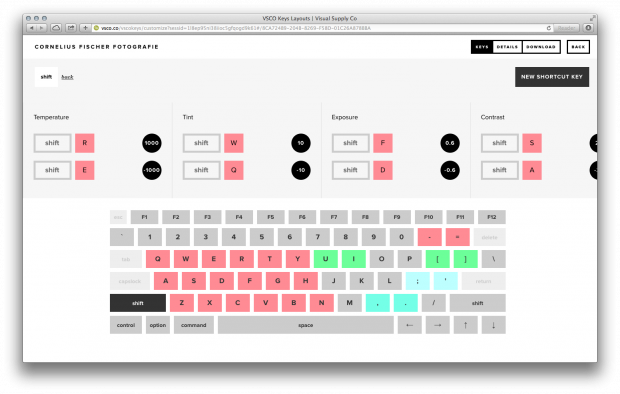
Months later, here we are in the thick of another meme cycle wherein high school subcultural dynamics are explored and consumed by people a decade or more removed from them. That wasn’t because I was particularly familiar with suburban high school fashion trends, but because it was a catchy nickname given to largely white and largely middle-class teenage girls, and those things always go viral.
#VSCO KEYS WINDOWS HOW TO#
How to edit settings.I can’t pinpoint the exact moment I heard the term “VSCO girl” but I know it was on TikTok, and I was pretty sure that it would be a big deal.
#VSCO KEYS WINDOWS CODE#
In Visual Studio Code becuase of not understanding there are different ways for different situations.Īs I figured out, there are three ways to edit settings.json I got stuck yesterday when I was trying to change the settings.json SETTING UP VSCO KEYS STANDARD LAYOUT HOW TO SETTING UP VSCO KEYS STANDARD LAYOUT CODE in Workspace in User Preferences (Global). You can change the settings.json from your user preferences.

Therefore it will affect all of your projects.
#VSCO KEYS WINDOWS WINDOWS#
Windows %APPDATA%\Code\User\settings.json.macOS $HOME/Library/Application Support/Code/User/settings.json.Linux $HOME/.config/Code/User/settings.json.You can add the settings to this file (may be given by a extension) and make all of these settings global. If you have opened a folder ( File -> Open Folder), here's the way to add settings.json in the folder.

Create a file named settings.json in that folder and add your settings there.If you have opened a workspace ( File -> Open Workspace to open or saved using File -> Save Workspace As.), here are the steps to change Note that in this way, you don't have a settings.json. When you save the workspace, it creates a file called de-workspace.You can add the settings by adding a key named "settings" in JSON.When you add settings into de-workspace file, the settings will only be available for the current workspace. If you’re new to Chromebooks, familiarize yourself with all the nooks and crannies for an overall better experience. We could fill up an entire post listing all the keyboard shortcuts crammed into Chrome OS, but why bother? You can see all of them for yourself at any time by pressing the following keys simultaneously: To help get you started, here are a few tips that will advance you to “power user” status in no time. This opens a window listing all keyboard shortcuts divided into six categories. To close the shortcut map, just click the X button. Need to type Unicode characters? You can do that on a Chromebook. All you need to know is the Unicode’s number, listed here, and the key combination. Here’s what to type:įor example, to get the trademark symbol, type Ctrl + U + 2122. Want to see all the windows and desktops you have open on one screen? Simply swipe three fingers down on your touchscreen or trackpad to activate this mode. You can also press the Show windows button key, or F5.

Like Windows and MacOS, Chromebooks have the native ability to create new virtual desktops. You can also create and manage virtual desktops using the following steps: To add a virtual desktop, press the following keys simultaneously: This allows you to assign different groups of windows to different desktops, arranging more complicated projects effortlessly without getting them too confused or overloading any single desktop. Step 1: Use three fingers to swipe down on your touchscreen or trackpad. SETTING UP VSCO KEYS STANDARD LAYOUT WINDOWSĪlternatively, press the Show windows button key, or F5. Step 2: Tap or click New Desk located in the top right corner.

You’ll see the new desktop listed next to your original desktop in a ribbon running along the top edge of your screen. You can delete a virtual desktop by clicking the “x” on the desktop’s thumbnail. Change the Shelf positionīy default, the Shelf sits at the bottom of the screen, but it doesn’t have to live there indefinitely. If you like your taskbar on the top or sides, Chrome OS offers that customization too. Step 2: Hover the cursor over Shelf Position listed on the pop-up menu. Step 3: Select Left, Bottom, or Right on the extended menu. If you find text or images a little too hard to see on your Chromebook (especially on newer high-resolution screens), you have two options. Your first option is display scaling, which scales fonts, icons, and so on without reducing visual fidelity no matter the setting.


 0 kommentar(er)
0 kommentar(er)
